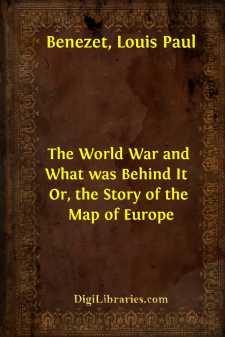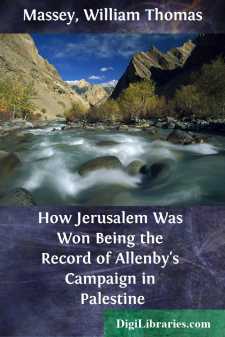History
- Africa 30
- Americas (North Central South West Indies) 50
- Ancient 68
- Asia 58
- Australia & New Zealand 8
- Canada 41
- Caribbean & West Indies 1
- Civilization 20
- Eastern Europe 12
- Europe 310
- Expeditions & Discoveries 60
- General 77
- Historical Geography 1
- Jewish 9
- Latin America 3
- Medieval 8
- Middle East 13
- Military
- Revolutionary 8
- Study & Teaching 5
- United States 353
- Western Europe 56
- World 13
Military Books
Sort by:
INTRODUCTORY CHAPTER. At the present day, when our Continental neighbours are outvying each other in the completeness of their military organisations and the size of their armies, while in the United Kingdom complaints are daily heard that the supply of recruits for the British Army is not equal to the demand, it may not be out of place to draw the attention of the public to a source from which the...
more...
CHAPTER I Outbreak of the war—The Transport Service and despatch of Army Corps from Southampton—Departure of a Naval Brigade from England and landing at Capetown and Durban—I join H.M.S. Philomel. During a short leave of absence in Scotland, after my return from Flag-Lieutenant's service in India with Rear-Admiral Archibald L. Douglas, that very kind friend, now Lord of the Admiralty,...
more...
by:
Rudyard Kipling
A RETIRED GENTLEMAN From Bishen Singh Saktawut, Subedar Major, 215th Indurgurh [Todd's] Rajputs, now at Lyndhurst, Hampshire, England, this letter is sent to Madhu Singh, Sawant, Risaldar Major [retired] 146th [Dublana] Horse, on his fief which he holds under the Thakore Sahib of Pech at Bukani by the River, near Chiturkaira, Kotah, Rajputana, written in the fifth month of the year 1916, English...
more...
by:
G. William Breck
Dere Mable Love Letters of a Rookie Dere Mable: I guess you thought I was dead. Youll never know how near you was to right. We got the tents up at last, though, so I got a minit to rite. I guess they choose these camps by mail order. The only place there flat is on the map. Where our tents is would make a good place for a Rocky Mountin goat if he didnt break his neck. The first day the Captin came out...
more...
CHAPTER I VERDUN Beneath the canvas of a huge hangar mechanicians are at work on the motor of an airplane. Outside, on the borders of an aviation field, others loiter awaiting their aërial charge's return from the sky. Near the hangar stands a hut-shaped tent. In front of it several short-winged biplanes are lined up; inside it three or four young men are lolling in wicker chairs. They wear the...
more...
MAPS TO VOLUME I. Pains have been taken to embody in the maps all topographical information existing up to date. A very considerable amount of valuable triangulation has been executed over portions of South Africa, but no systematic detailed survey has ever been made by any of the South African colonies or states. Maps have, however, been compiled by both Cape Colony and Natal. The former has prepared...
more...
THE SOUTHWESTERN CAMPAIGN The Southwest became prominent before the nation early in the war from the doubt existing as to the position of Missouri, which was saved by the energy and determination of Frank P. Blair and Colonel Nathaniel Lyon; the latter first capturing Camp Jackson, on May 10th, 1861. He then, picking up what force he could without waiting for them to be disciplined or drilled,...
more...
Chapter I The Great War The call from Europe.—Friend against friend.—Why?—Death and devastation.—No private quarrel.—Ordered by government.—What makes government?—The influence of the past.—Four causes of war. Among the bricklayers at work on a building which was being erected in a great American city during the summer of 1914 were two men who had not yet become citizens of the United...
more...
CHAP. I. Bethulie Concentration Camp, August, 1901. Wednesday, August 21.—Arrived station 8.30 a.m. (from Bloemfontein); tedious delay; no pass to village obtainable, official in village for breakfast; number of refugees in same train, among them a sick girl, with fever: "Pappie, Pappie, ach mij ou Pappie!" ("Daddy, daddy! O my dear daddy!" Thus she cried whenever she was touched, as...
more...
CHAPTER I PALESTINE'S INFLUENCE ON THE WAR In a war which involved the peoples of the four quarters of the globe it was to be expected that on the world's oldest battleground would be renewed the scenes of conflict of bygone ages. There was perhaps a desire of some elements of both sides, certainly it was the unanimous wish of the Allies, to avoid the clash of arms in Palestine, and to leave...
more...











